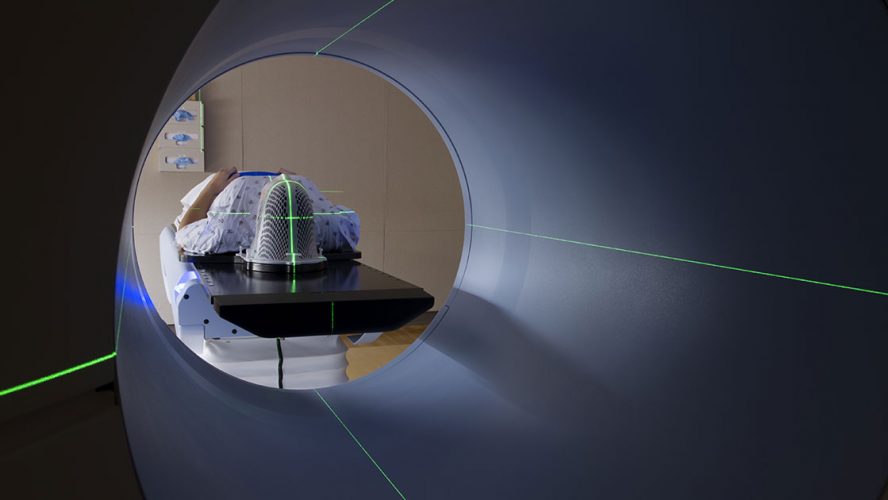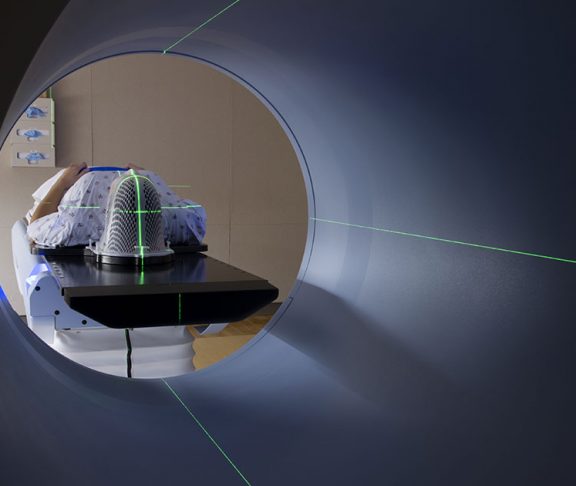Gina* is a 45-year-old cancer survivor. She had Hodgkin lymphoma when she was 15, which was treated successfully with chemotherapy and chest radiation. Years later, Gina noticed shortness of breath and chest tightness with exertion, but she attributed her symptoms to being out of shape. When her symptoms worsened, she saw her physician. An evaluation including a heart ultrasound (echocardiogram), a stress test and a coronary angiogram revealed blocked coronary arteries and a blocked heart valve. To her surprise, she learned that her heart problems were related to prior radiation treatment. She would need heart surgery.
Weighing the risk
Radiation therapy and chemotherapy have been life-saving for various types of cancers including many affecting children and adolescents. As a result, large numbers of young people have survived into adulthood. However, radiation can result in complications many years later. Therefore, life-long follow-up for cancer survivors that were treated with chest radiation is important.
There are numerous potential late effects of chest radiation, including secondary cancers, thyroid disorders (if the field of radiation included the neck), lung scarring, damage to the food pipe (esophagus) and heart and blood vessel disorders.
Problem regions
The heart and blood vessels are particularly vulnerable to the effects of chest radiation. Typical heart-related symptoms include chest discomfort, difficulty breathing, swollen legs, dizziness and fainting. Chest radiation has the potential to cause the following abnormalities of the heart: blockages/plaque in the coronary arteries, which increases the risk of heart attack; blockages/plaque in any other blood vessel in the area treated with radiation; scarring of the heart valves, heart muscle or pericardium (the sack around the heart); and abnormal flow of electrical currents in the heart.
A critical message
Gina’s surgery was a success, and she was able to return to a normal life. She now sees her health care providers regularly for office visits, secondary cancer screening and periodic echocardiograms to check on her heart. She is taking heart medications, eating healthy and exercising daily.
Gina wants to send a message to cancer survivors: Radiation is life-saving since it can cure cancer. However, later in life, damage can appear in the organs that were exposed to the radiation, especially the heart. If you are a cancer survivor and received radiation, see your health care provider to discuss how you should be followed. Be aware of any unusual symptoms. Exercise regularly, eat healthy, maintain a healthy weight and don’t smoke. By following these steps, you can potentially save your life… for the second time.
*Gina is not the real name of this patient. Any similarities in this article to any real patients or patient circumstances are purely coincidental.

